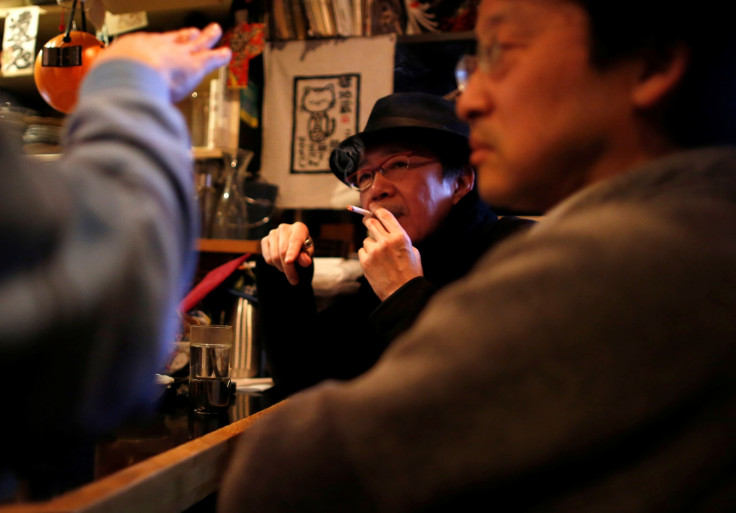Pressure mounts on Japan to make Tokyo smoke-free ahead of Olympics 2020
WHO and IOC urge Shinzo Abe government to introduce anti-smoking measures.
Ahead of the 2020 Olympics in Tokyo, the Shinzo Abe government has been urged to ban smoking in all public places, including a few indoor places, to create a healthy sporting environment.
Host cities during previous Olympics have passed anti-smoking measures during the games. There is now pressure on Japan from organisations including the World Health Organisation (WHO) and International Olympic Committee (IOC) to introduce similar measures in Tokyo as well.
However, efforts to introduce an anti-smoking law by the Japanese government have hit a roadblock following opposition from the restaurant sector, pro-smoking lawmakers and Japan Tobacco, a one-third government company.
The initial draft of the bill issued in early March even included banning smoking at all indoor public places, especially at government and sports facilities. However, the health ministry later made a relaxation, allowing smoking indoors in offices, movie theatres, restaurants and bars as long as the place has a space of around 30sq m and sufficient ventilation.
The relaxation came after those opposing the bill said they would lose customers who smoke. They still argued that the even relaxed measure will hurt many restaurants in the country, as well as restrict personal freedom. Besides, if the move becomes law, it can lead to a dip in tobacco tax revenue, which hit ¥2tn ($18bn) in the year 2014-15.
Health committee chair of the ruling Liberal Democratic Party, Naomi Tokashiki, said she agreed there should be a law that protects against passive smoking. But Japan's culture stresses on good manners and sensitivity to others.
"It's more important for us to trust people than enact a really repressive law," she said.
However, an unnamed health ministry official who is part of the committee that drafted the bill said it was not a question of manners.
"We're looking at the impact on health. We've basically allowed people their independence, but the situation hasn't changed. Something more is needed," Reuters cited the official, who did not want to be named, as saying.

Although smoking has declined in Japan since 1996, the country is reported to be still ranked at the bottom of the list when it comes to anti-smoking regulations.
About 15,000 people in the Far East country – mostly women and children – die each year from passive smoking, according to WHO and Japanese government estimates.
A law passed in 2003 advised restaurants and other public places to allot a separate smoking zone, but since there was no penalty attached to the law, most of the organisations did not comply with it.
Reuters noted that Japan may not vote for the bill to become law before the current parliamentary session ends on 18 June.
© Copyright IBTimes 2025. All rights reserved.





















